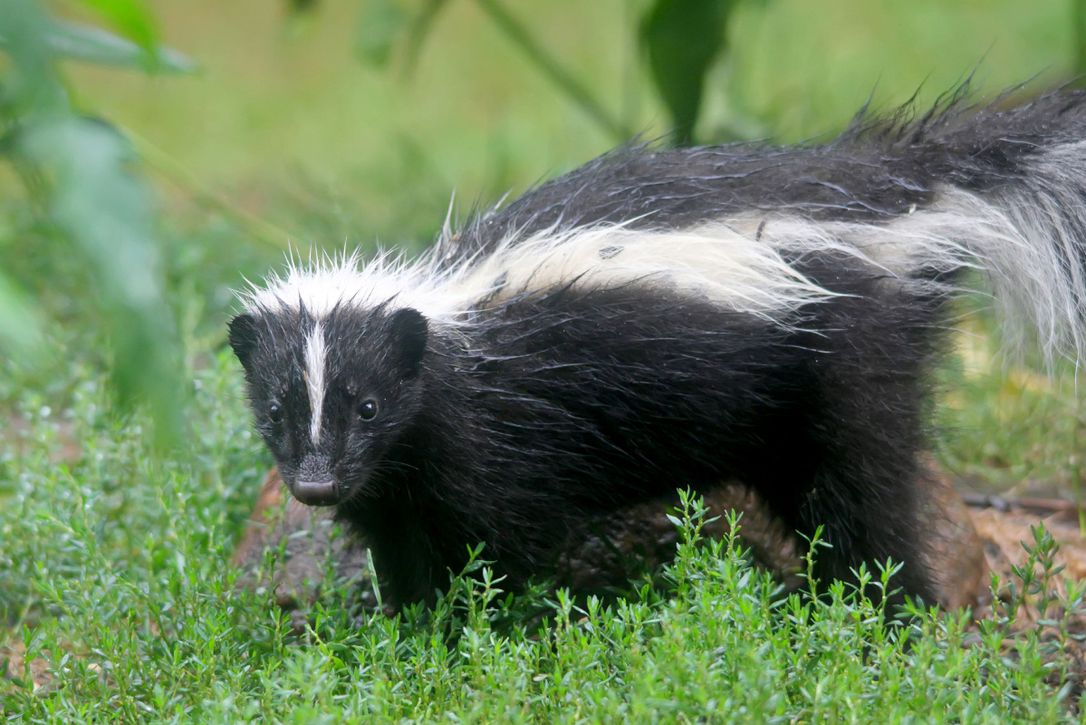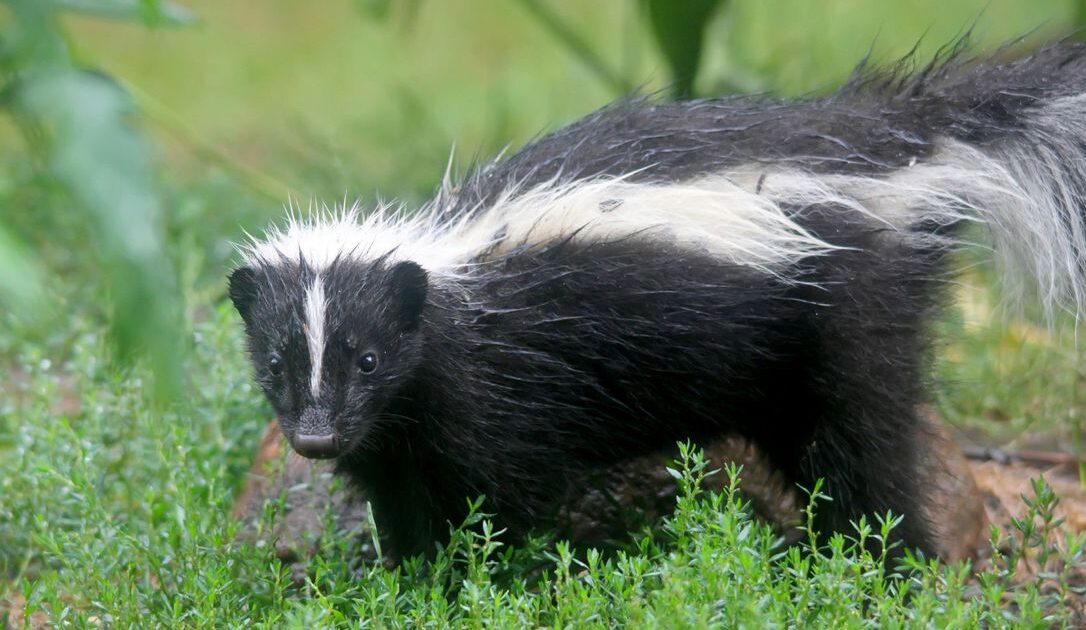Many people do not realize that skunks are a natural form of rodent and insect control. Therefore, while you may not want the animal living near your home, it is often best to find a way to coexist in harmony, and experts in wildlife control in Newmarket will usually agree.
However, there is a point when skunks themselves can become a nuisance or threat to your animals, and that is primarily when they begin using your yard as a home or a common pathway. When skunks become too accustomed to an area, your pets may become victims to the animal’s notorious defense mechanism: its spray.
While a pet parent never wants to expose their animal to such an odorous assault, dogs typically fare better than cats. Dogs do not mind baths and are usually pretty manageable even under duress. Cats, on the other hand, tend to panic. How do you handle a cat that a skunk sprays? In a word, carefully. Still, you need to know how spray can affect your pet and the best way to remove the overwhelming odour while limiting exposure to the rest of your property.
How Spray Might Affect Your Feline Friend
Aside from the pungent smell, skunk spray can lead to problems for your pet, especially if it swallows the substance or gets hit in the eye. Unfortunately, more often than not, a skunk will spray your pet directly in the face. While the smell is enough to make your pet nauseous, the chemical makeup of the substance can lead to vomiting and uncontrollable drooling if swallowed. Additionally, in rare cases, the spray can cause damage to the red blood cells, resulting in anemia.
If your cat is hit in an open eye, the substance acts like pepper spray. A pet can experience temporary blindness, redness, and swelling around the eyes. The irritation can cause your pet to rub its eyes too much, which can damage the cornea.
How To Deskunk Your Cat Without Bathing
Most cats do not like water, and even those that don’t mind it might be less willing after a skunk attack. For cats, the best solution is usually finding a way to bathe them without dumping them into a tub of water.
Honestly, water is one of the worst things you can apply to your pet following skunk spray. Specific thiols in skunk spray worsen when exposed to water, meaning water makes the smell worse.
The best solution to remove skunk spray is a commercial de-skunking product. However, if you do not have access to such a product, the next best thing is a homemade solution of 2 cups of 3% hydrogen peroxide, an eighth cup of baking soda, and a half-teaspoon of liquid dish soap.
Apply the mixture to the skunk-sprayed areas of your cat’s fur. Allow the mixture to sit for three to five minutes. After allowing it to sit, you can use a damp rag to wipe off the mixture. A warning: do not use hydrogen peroxide regularly on your cat’s skin as it is too harsh. This mixture should only be used in an emergency and as a stand-in for better over-the-counter products.
Preventing an Attack
The best way to prevent a skunk from spraying your cat is to keep it indoors. Cats and dogs get in trouble because they are curious and fail to interpret a skunk’s defensive stances or gestures. Alternatively, if you know you have a skunk on or around your property, you can contact a humane skunk removal service to remove the animal.
Do you have a skunk family lurking around your property? Are you worried your pet will become a victim? Contact Skedaddle Humane Wildlife Control to schedule a property assessment.




